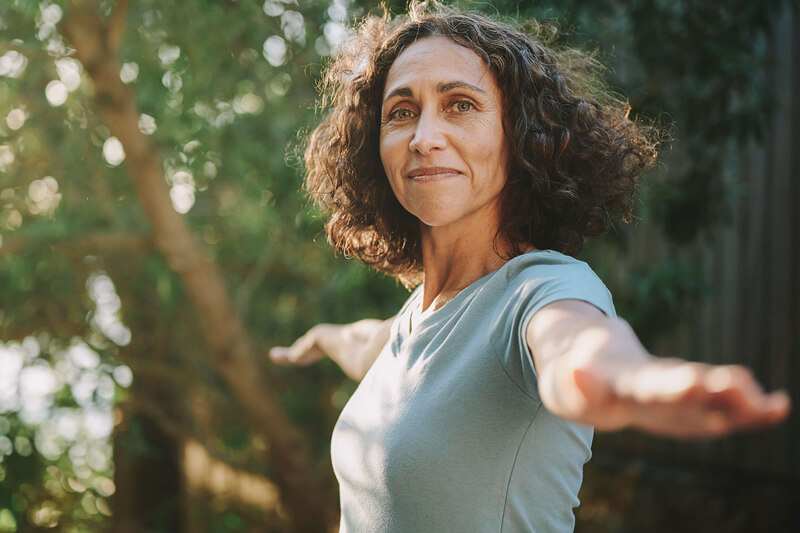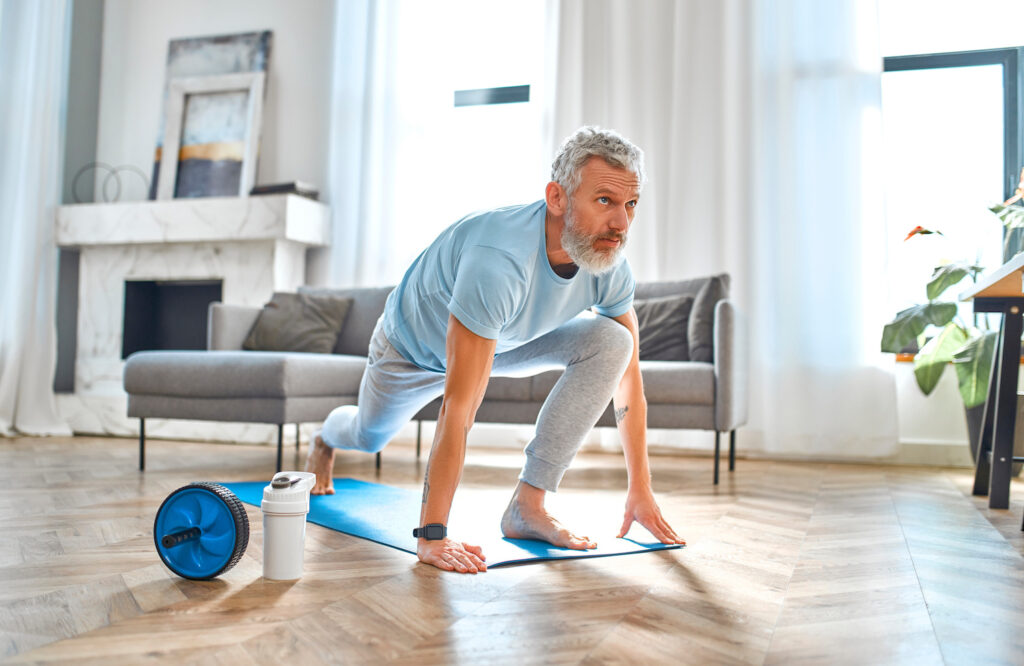Why Is Bone Health So Important?
There are a number of things you can do today to help prevent osteoporosis as you get older.
Maintaining healthy bones now is fundamental in order to avoid future suffering from osteoporosis; a condition characterized by weak, fragile bones and is very common in older adults.
What is Osteoporosis?
Osteoporosis causes bones to become weak and brittle — so brittle that a fall or even mild stresses, such as bending over or coughing, can cause a fracture. As your bones lose density and become more fragile, your risk of fractures increases. Osteoporosis-related fractures most commonly occur in the hip, wrist or spine.
The risk of developing osteoporosis increases as people grow older. At the time of menopause, women may lose bone mass quickly for several years. After that, the loss slows down but continues. In men, the loss of bone mass is slower. By age 65 or 70, men and women lose bone mass at the same rate.
What Causes Osteoporosis?
Your bones are in a constant state of renewal — new bone is made, and old bone is broken down. When you’re young, your body makes new bones faster than it breaks down old bones, and your bone mass increases. Bone loss happens because your bones are in a constant state of remodeling. Throughout your life, your body removes older, damaged bone and replaces it with new bone. After the early 20s, this process slows, and most people reach their peak bone mass by 30. As people age, bone mass is lost faster than it’s created.
How to Maintain Healthy Bones And Prevent Osteoporosis
Lifestyle changes like exercising, eating healthy, and preventing falls help maintain healthy bones and are important parts of an osteoporosis treatment plan. This includes eating a diet rich in vitamin D and calcium, starting a bone-strengthening exercise routine, and incorporating some tweaks around the house to reduce the likelihood of falling.
The Right Nutrition
A lifelong lack of calcium plays a role in the resulting weaker bone density and the development of osteoporosis. Low calcium intake contributes to diminished bone density, early bone loss and an increased risk of fractures. Men and women between 18-50 need 1,000 milligrams of calcium a day. This daily amount increases to 1,200 milligrams when women turn 50 and men turn 70.
Vitamin D improves the body’s ability to absorb calcium and improves bone health in other ways. People can get some of their vitamin D from sunlight, but this might not be a good source if you live in a high latitude, if you’re housebound, or if you regularly use sunscreen or avoid the sun because of the risk of skin cancer.
Limit Alcohol, Smoking, and Caffeine
As with food, in order to maintain healthy bones and avoid osteoporosis one should also be mindful of the other substances they consume—like alcohol, tobacco, and caffeine.
Here’s what experts recommend:
- Drinking alcohol in moderation or not at all, as it appears to block the body’s ability to regenerate and strengthen bones.
- Avoiding secondhand smoke or quitting smoking, as research shows tobacco use can increase the risk of bone fractures.
- Limiting caffeine, which may interfere with bone metabolism and calcium absorption if consumed in larger amounts.
Exercises For Stronger Bones
Exercise can help you build strong bones and slow bone loss. Exercise will benefit your bones no matter when you start, but you’ll gain the most benefits if you start exercising regularly when you’re young and continue to exercise throughout your life.
Combine strength training exercises with weight-bearing and balance exercises. Strength training helps strengthen muscles and bones in your arms and upper spine. Weight-bearing exercises, such as walking, jogging, running, stair climbing, skipping rope, skiing and impact-producing sports, affect mainly the bones in your legs, hips and lower spine. Balance exercises, such as tai chi, can reduce your risk of falling, especially as you get older.
Be Proactive with Your Bone Health
You can also be proactive in maintaining healthy bones and in fighting against osteoporosis by getting preventive bone densitometry scans. It can help identify individuals who are at risk for osteoporosis and bone fractures, allowing for early intervention and treatment to prevent these conditions. It is the only test that can diagnose osteoporosis before a broken bone occurs.
DEXA Scan
Bone densitometry, also called dual-energy x-ray absorptiometry, DEXA or DXA, uses a very small dose of ionizing radiation to produce pictures of the inside of the body (usually the lower (or lumbar) spine and hips) to measure bone loss.
Experts typically consider a DEXA scan to be the most accurate test, or gold standard, for measuring bone density. This is largely due to the accuracy and precision of the scan in assessing an individual’s risk for developing osteoporotic fractures. A DEXA scan can detect bone loss and osteoporosis at an early stage, allowing for early intervention and treatment to prevent fractures.
Regular bone density screenings done by expert Canadian practitioners from DexaCan diagnose osteoporosis and other bone problems early. From there, they can be managed and even curbed with prescription medication and lifestyle modifications.
Request an appointment with DexaCan to learn more about how you can proactively take charge of your bone health and prevent osteoporosis.





